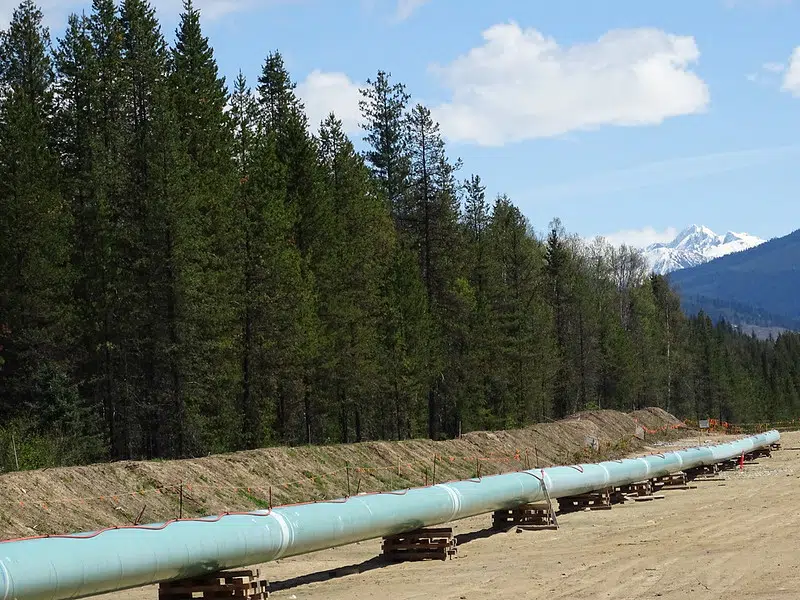Stop Rosebank address Equinor CEO
It’s not displaying properly for some reason but well worth trying to watch Stop Rosebank appearing at the Equinor AGM.
Watch Lauren’s powerful intervention

It’s not displaying properly for some reason but well worth trying to watch Stop Rosebank appearing at the Equinor AGM.
Watch Lauren’s powerful intervention

In ‘Grave Breach’ of International Law, Israel Orders More Evacuations in Rafah
As Gaza Assault Intensifies, Egypt Joins ICJ Case Accusing Israel of Genocide





…
Rees-Mogg claimed this was “nonsense” and that no fossil fuel subsidies were handed out. He argued that they were tax breaks not subsidies and that the two were “completely different”, before cutting off the interview telling Vince to “do your homework”.
The energy boss did, and hit back with a video in which he explains how tax breaks are subsidies, as laid out in a piece of Brexit legislation passed when Rees-Mogg himself was Brexit Minister.
Vince refers to a piece of Brexit legislation, the Subsidy Control Act 2022, which replaced EU laws with new British legislation which he said lays out that tax breaks are in fact counted as subsidies.
In the video Vince said: “It begs the question, Mr Mogg, were you not paying attention when you were Brexit Minister passing pieces of legislation, did you not know that it was EU rules that say that tax breaks are subsidies and UK rules as well, both inside and outside the EU? Have you not done your homework?”
The New Economics Foundation has estimated that oil and gas extractors could receive up to £18.5bn in tax relief between 2023 and 2026, while the UK government gave fossil fuel companies £20bn more in support than renewables from 2015 to 2023, research found.
Campaigners have said that owners of the Rosebank development, a massive new, controversial oilfield in the North Sea, are set to receive around £3bn in tax breaks from the UK government.
The british green energy industrialist was praised online for his comeback.
A professor of law wrote on X: “Indeed, and a tax break can also be a subsidy (provided that it is specific) under the rules of the blessed WTO, which Rees-Mogg used to praise so highly. It’s Rees-Mogg who did not do his homework here.”
…
It looks like a hashtag to me. Isn’t a holding your finger is a V-shape a victory sign?
Spokesman Joost Thus: “The A12 blockades have ensured that the injustice of fossil subsidies is clear to everyone. 72% of Dutch people want to get rid of fossil subsidies [1] and more than three quarters of the Second Last October, the House voted in favor of a motion on phase-out plans. The success of the A12 blockades has set in motion an international movement. An international coalition of 25 movements from 14 countries will fight at EU level for an end to fossil subsidies. This week there are Stop Fossil Subsidies actions in 6 European countries. It will be announced on Saturday on the A12 how we will increase the international pressure on politics and the fossil industry in the near future.”
Phasing-out plans for the outgoing cabinet
The outgoing cabinet presented the phasing-out plans for fossil subsidies in February. The abolition of fossil subsidies is postponed again until 2030 or even 2035. Moreover, the outgoing government states that phasing out a large part of fossil subsidies is difficult due to international agreements. But this goes directly against the international agreements that the Netherlands made at the G20 in 2009 (!) to phase out fossil subsidies before 2020.Need to abolish fossil subsidies
Fossil subsidies stimulate the large-scale consumption of fossil fuels. Companies such as Shell, Tata Steel and KLM receive huge discounts on the use of oil, gas and coal in the Netherlands. In total, this amounts to between 39.7 and 46.4 billion euros per year in the Netherlands alone. Globally, the IMF reserves an amount of $7 trillion for 2022 [2]. In this way, the use of energy sources whose emissions drive the climate and ecological crisis is supported and stimulated. While this crisis endangers the lives of millions of people, animals and ecosystems.…

Greta Thunberg was detained by police at a demonstration in The Hague, in the Netherlands.
The climate activist was put in a bus by local police along with other protesters who tried to block a major highway into the city on Saturday.
Thunberg had joined a protest by hundreds of activists and was detained when she joined a group of about 100 people who tried to block the A12 highway.
Before she was detained, Thunberg said: “We are in a planetary emergency and we are not going to stand by and let people lose their lives and livelihood and be forced to become climate refugees when we can do something.”
…
The Extinction Rebellion campaign group said before the demonstration that the activists would block a main highway into The Hague, but a heavy police presence, including officers on horseback, initially prevented the activists from getting on to the road.
A small group of people managed to sit down on another road and were detained after ignoring police orders to leave.
Extinction Rebellion activists have blocked the highway that runs past the temporary home of the Dutch parliament more than 30 times to protest against subsidies.
The demonstrators waved flags and chanted: “We are unstoppable, another world is possible.”
…
The Guardian article didn’t make clear that Dutch Extinction Rebellion is continuing it’s campaign against huge fossil fuel subsidies by the Dutch government that support the fossil fuel industry.
Original article by Taylor Noakes republished from DeSmog.

Last year was one of the worst on record for climate change-related disasters, yet Canada’s federal government spent $18.6 billion supporting the fossil fuel and petrochemical industry.
A new report by the nonprofit Environmental Defence indicates that, despite record profits for the fossil fuel industry and Canadian claims to eliminate subsidies, the government of Justin Trudeau continues to spend massive quantities of public money supporting the primary cause of climate change.
“As people across Canada faced a fossil fuel affordability crisis, and climate disasters continued to ravage the country and the world, the government of Canada continued providing financial support to an industry that we need to be winding down in order to avoid catastrophic levels of warming,” Julia Levin, associate director of National Climate at Environmental Defence told DeSmog.
“Taxpayer handouts to Canada’s wealthiest companies means that less money is available for the types of investments that could actually help people across the country who are deciding between food and energy bills,” she said.
To put that in context, Environmental Defence’s “Canada’s Fossil Fuel Funding in 2023” report estimates that the Canadian government’s accumulated subsidies to the oil and gas sector over the last four years was at least $65 billion.
“That level of support could have fully funded every major wind and solar project in Canada from 2019 to 2021 12 times over,” said Levin. “It is 10 times what the government has invested in climate change adaptation since 2015. Around half of that, $35 billion, is enough to double transit ridership across the country over the next 12 years.”
The report identified specific subsidies including loan guarantees of $8 billion for the Trans Mountain Expansion pipeline (TMX), and $7.3 billion in public financing through Crown corporation Export Development Canada. The report also noted over $1.3 billion in subsidies for carbon capture and storage projects, and approximately $1.8 billion in tax breaks for the oil and gas and related sectors.
The Trans Mountain project, controversially acquired by the Trudeau government early in 2018, would not have been possible without considerable direct federal government financial support. Initially estimated to cost $5.4 billion to complete, the most recent cost estimates are $34 billion. In addition to the added climate risk of a new pipeline exporting Canadian oil, with an anticipated drop in the global demand for oil, the project remains a substantial financial risk—one of the reasons Kinder Morgan abandoned it in the first place. The pipeline has been called a ‘global warming machine.’
Environmental Defence’s report further notes the oil and gas sectors’ cost to society — in terms of air pollution, climate change-related natural disasters, and/or extreme weather — is estimated at $52 billion for 2023 alone.
Environmental Defence has been tracking the Canadian government’s subsidies to the oil and gas sector for several years, and as Levin explained in an interview with DeSmog, the organization has noticed certain trends.
“With the exception of 2020 as a COVID year, federal support to the oil and gas industry has been consistently around $18 to 20 billion in recent years,” she said. “We are seeing an increase in subsidies for carbon capture, and we know these are set to rise as the CCUS [Carbon Capture, Utilization, and Storage] investment tax credit gets finalized.”
Carbon capture and storage is the oil and gas industry’s preferred solution to addressing climate change, and the Canadian and American federal governments have heavily subsidized the technology. Critics warn that, rather than lowering emissions, carbon capture is emissions intensive and will be used to increase oil production through a technique called “enhanced oil recovery.” As previously reported by DeSmog, federal and provincial governments in Canada are preparing to spend billions in carbon capture subsidies.
Similarly, so-called blue hydrogen (hydrogen derived from natural gas using carbon capture) is also a costly, carbon- and resource-intensive false solution promoted by industry and government alike.
Levin called carbon capture and hydrogen “dangerous distractions.”
“The government of Canada is finalizing a carbon capture investment tax credit as well as a hydrogen investment tax credit,” Levin pointed out. “Recent budget analysis from the Parliamentary Budget Office estimates that these two tax credits will collectively provide over $11 billion to carbon capture and hydrogen projects by 2028.”
“Despite 50 years of investment, carbon capture has never worked as promised,” said Levin.
“Most projects never make it off the ground; the few that do fail to deliver the promised emissions reductions,” she said. “Oil and gas companies know this is a dead-end technology that won’t make a dent in emissions but they are promoting it to delay the clean energy transition and wring out even more subsidies.”
Levin noted that hydrogen is also being used by oil and gas companies to justify continued, and even expanded, fossil fuel production.
The government’s misuse of public money isn’t limited to unproven technologies masquerading as climate change solutions. Environmental Defence’s report reveals that the same funds could have been used for new green energy projects and the development of public transit infrastructure, and could also have taken a bite out of Canada’s affordability crisis.
“At a time when Canadians are dealing with a cost of living crisis, that level of funding could have retrofitted millions of homes to make them more energy efficient, therefore reducing energy bills,” Levin said. “It could have been used to reduce Canadians’ dependence on fossil fuels by switching our cars, furnaces, and stoves to electric options, which shields households from the inflationary pressures caused by fluctuating oil prices.”
Levin notes that there are other types of subsidies that Environmental Defence did not include in their inventory.
“The climate pollution created by oil and gas companies has massive costs, including health costs, property damage from extreme weather events, and decreased agricultural productivity due to changing weather patterns,” she said.
The report also found that oil and gas companies get considerable breaks on carbon pricing, which forms yet another kind of subsidy.
Canada’s continued subsidies to the fossil fuel sector defy explanation in this era of climate change. But they also contradict the government’s official messaging on fighting global warming, and the Canadian public’s expectations of their government.
“Ending fossil fuel subsidies should be the low hanging-fruit of climate policy,” said Levin. “It’s painfully obvious that when you’re in a hole, the first thing you do is stop digging.”
While the government has promised to end funding to the fossil fuel industry, far more action is needed, Levin believes.
“Finance Minister Chrystia Freeland must use Budget 2024 to announce the immediate steps the government is taking to eliminate all of its financing to the oil and gas industry, as was promised back in 2021,” said Levin.
“Rather than subsidizing fossils we should be taxing their massive profits – and investing the revenues into clean energy measures that will benefit Canadians.”
Original article by Taylor Noakes republished from DeSmog.